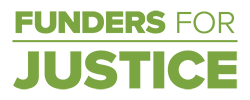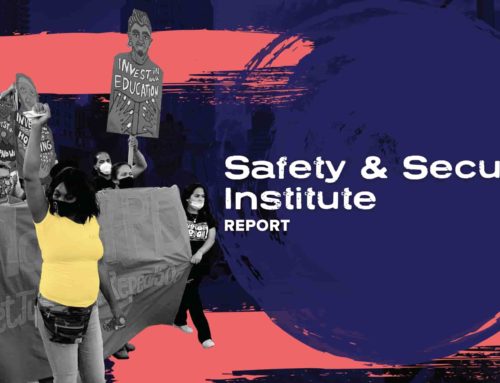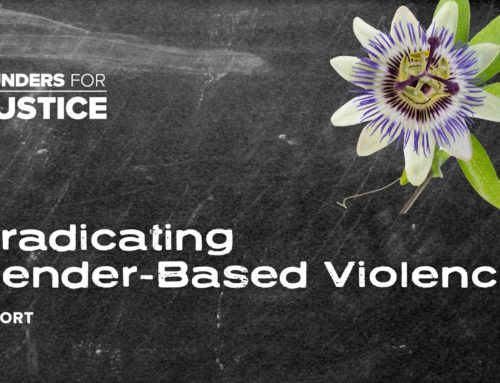by Patrisse Marie Cullors-Brignac
In 2013, I helped create a Black-centered political will and movement building project called #BlackLivesMatter. You may have heard of it. As many of you know, it was in response to the acquittal of Trayvon Martin’s murderer, George Zimmerman. Another co-creator, Alicia Garza first uttered the words in a love note to Black people. I slapped a hashtag on it because I understood the power of spreading messages. Opal Tometi caught wind and helped us develop the broader social media platform, among other things. All of us are trained radical Black organizers, who have long been a part of the larger Black liberation movement.
This story has been told time and again in the years since we co-created the project, which is now a network of more than 30 regional chapters. And in that time, there has been a complicated conflation of the earlier project and the movement as we know it today — a conflation that has resulted in hurt feelings, online assaults, and a familiar erasure of the work of Black queer women.
HISTORY OF #BLACKLIVESMATTER THE PROJECT TURNED NETWORK
As organizers who worked with everyday people, Alicia, Opal, and I often saw significant gaps in the movement. Black liberation movements in this country have created room and space and leadership mostly for Black heterosexual, cisgender men, leaving women, who are often queer or transgender, either out of the movement or in the background to move the work forward with little or no recognition. As younger organizers we recognized a need to center the leadership of women. Among our movement mentors were queer and trans people whose labor had been erased and replaced with an uncontested narrative of male leadership.
As #BlackLivesMatter developed throughout 2013 and 2014, we utilized it as a platform and organizing tool. Other groups, organizations, and individuals used it to amplify anti-Black racism across the country, in all the ways it showed up. Tamir Rice, Tanisha Anderson, Mya Hall, Walter Scott, Sandra Bland — these names are important. They’re inherently important and the space that #BlackLivesMatter held and continues to hold helped propel the conversation around the state-sanctioned violence they experienced. Particularly highlighting the egregious ways in which Black women, specifically Black trans women are violated. #BlackLivesMatter was developed in support of all Black lives.
In 2014, Mike Brown was murdered. I stayed up all night trying to figure out how to support the brave and courageous community of Ferguson and St. Louis as they were being brutalized by law enforcement, criticized by media, tear gassed, and pepper sprayed night after night. It was a guttural response to be with my people, my family. I called some friends to see if any of them would drive with me to Ferguson. Then, Darnell Moore, a good friend, said we should do a national ride during Labor Day weekend. We called it the “Black Life Matters Ride.” We put a call out to folks on the ground in St. Louis, asking whether it would be of use to have our team show up. They said yes. In 15 days we developed a plan of action to head to the occupied territory to support our brothers and sisters. THIS INCLUDED us spending time, in community, with St. Louis-based organizations as well as individuals we connected with who were on the ground in St. Louis. We asked them to let us know what their needs were and to tell us exactly how our presence could best be utilized to elevate their plight. Our goal was to amplify their work and not distract attention away from it. Over 600 people gathered. One of the most powerful displays of collective power were the moments local STL leaders met with and provided guidance to those of us who traveled from out of town. We made two commitments upon our return to our homes: to support the team on the ground in St. Louis and to go back home and do the work there. We understood Ferguson was not an aberration but, in fact, a clear point of reference for what was happening to Black communities everywhere.
When it was time for us to leave, inspired by our friends in Ferguson, organizers from 18 different cities went back home and developed Black Lives Matter (BLM) chapters in their communities and towns — broadening the political will and movement building reach catalyzed by the #BlackLivesMatter project and the work on the ground in Ferguson. It became clear that there was a need to continue organizing and building Black power across the country. People were hungry to galvanize their communities to end state-sanctioned violence against Black people, the way Ferguson organizers and allies were doing. Soon after, Opal, Alicia, Darnell and I helped create the BLM network infrastructure. It is adaptive and decentralized with a set of guiding principles. Our goal is to support the development of new Black leaders as well as create a network where Black people feel empowered to determine our destinies in our communities.
THE HAIRY BITS
At the time and still today, the media called the current iteration of this movement the “Black Lives Matter movement,” mostly erasing the creation and coining of the initial project. This conflation was cause for concern because the project was near and dear to our hearts. As queer Black women, we are often misremembered as contributors and creators of our work, a consequence of deep-seated patriarchy, sexism, and homophobia. But more importantly, this was cause for concern because movements don’t belong to any one person and we knew that this movement wasn’t started by us. Its roots lie in the Black organizers of centuries ago, our ancestors who, in the face of violence like chattel slavery, lynching, whipping, rape, theft and separation of our families fought for freedom from the state. But despite intervention after intervention with the media, they continued to conflate the two causing a fissure among some.
That notwithstanding, #BlackLivesMatter would not be recognized worldwide if it weren’t for the folks in St. Louis and Ferguson who put their bodies on the line day in and day out and who continue to show up for Black lives. And, yet, we knew there was something specific about Ferguson and the efforts of the brave organizers in Ferguson that made this movement moment different: more radically intersectional, more attuned to the technology of our times, more in your face. Ferguson organizers shifted the energy in this country in the direction of Black liberation in the same, and different, ways as the case of Amadou Diallo, Rodney King, Jenna 6, Troy Davis and Trayvon Martin.The project I co-created with Alicia and Opal is now the Black Lives Matter National Network with over 30 chapters both stateside and internationally. As co-creators and a network, we have consistently pushed and elevated the community of St. Louis and will continue to do so, taking personally the responsibility of uplifting the stories and experiences of those who contributed to building this powerful movement moment. People across the world have shown up to be on the front lines in moving Black people closer to liberation, albeit iteratively.
DISAGREEING WITH DIGNITY
I’m proud of the work each of us has done to make Black lives matter, and I’m disappointed in what I’ve experienced and understand as a lack of integrity, honesty, and an outright assault on people. In our current movement, there is no space for disagreeing with dignity, no room for dignified debate and critique. Social media, Twitter, in particular, has become an unsafe place for dissent, often ending in a psychological attack on people with opposing views. Indeed, people understand the difference between accountability and emotional violence.
And as we inch closer to liberation, we will do so in different ways, and it is important to note the differences in how we approach this important work. As a friend of mine recently said: “there’s no one right way to get free.” There are divergent strategies, however, and it feels especially important to point out two in particular: neoliberalism and Black radicalism. The former, in my opinion, can’t and won’t end violence against all Black people because neoliberalism relies on rigorous self-interest based platforms, the dismantling of social services, privatization and, due to its roots based in capitalist white supremacy, commits to specific strategies around policy agendas and reformist rhetoric that still requires the construction of an ‘other’.
The Black radical agenda, which pushes us closer to freedom and the agenda to which I subscribe, calls for an eradication of white supremacy and an adoption of values and traditions endowed from the Black experience. That I don’t agree with neoliberalism doesn’t encourage me to launch an online assault against those who do. We can, in fact, agree to disagree. We can have healthy debate. We can show up for one another as Black folks inside of this movement in ways that don’t isolate, terrorize, and shame people — something I’ve experienced first hand.
ADDRESSING CONFLICT MEANINGFULLY
The origins of this movement moment are important. The people and communities who make up that origin story are equally important. As an abolitionist, I don’t believe in throwing people away. I believe we create spaces and places where people can be held accountable for the harm they have caused as well as continuing to nurture people to be a part of the larger community we are trying to shape. But the online bullying, terrorizing, shaming, and harassing must stop. Like any organizer worth their salt I’m open to critique, but I won’t be bullied or treated badly. I’m an imperfect human, and as such I have a proclivity to make mistakes. And while I make mistakes, I am not my mistakes.
Conflicts and having different approaches to movement building can be incredibly generative. Our work in this leaderful movement is possible because many people before us generated new ideas on what is possible for Black liberation. I believe in mapping movement histories, and of the ones I’ve studied, none lacks conflict. Conflict, even public conflict, can be clarifying. What we need are better tools for conflict resolution. Some folks who have done that work well and have provided more space for us as Black people to show up authentically inside of ourselves and this movement is BOLD (Black Organizing for Leadership and Dignity). Their work has provided significant ground for Black people who are at the helm of this current movement. We should continue to grow the spaces that allow for us to be generative in our approach to conflict. Who is courageous enough to join me in this movement, showing up as our perfectly imperfect selves, in spite of and in the face of our differences? I am committed. Are you?
Read the original post on Medium.com.


